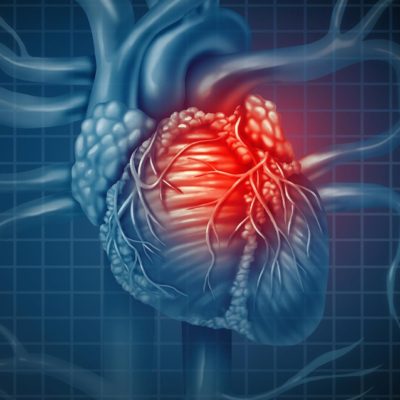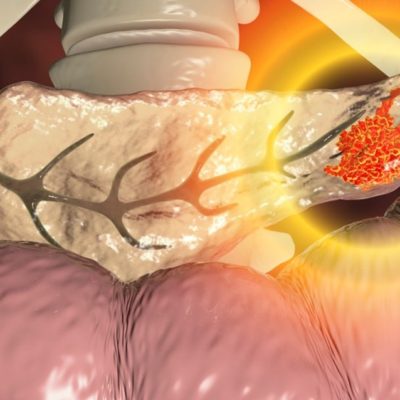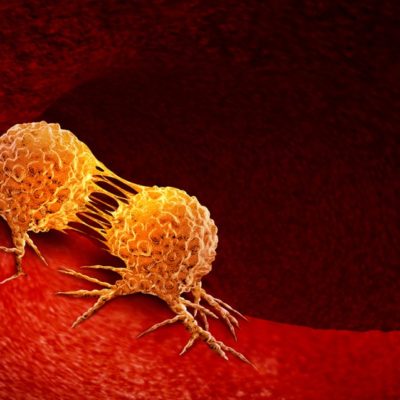New research suggests coaching overweight or obese pregnant women to improve their ability to plan and make progress toward goals may be key to helping them lower the amount of fat in their diet. Maternal diet quality affects prenatal development and long-term child health outcomes, but the stress that typically increases during pregnancy -- often heightened by concern for … [Read more...]
Discovery of Metabolic Switch Could Lead to Targeted Treatment of Obesity, Cancer
An Iowa State University research team has discovered a method for modifying the function of an enzyme crucial to fat production, which could lead to more effective treatments for childhood obesity and cancer. While the research was in fruit fly larvae, being able to speed up or slow down lipid metabolism could have significant implications for human health, said Hua Bai, … [Read more...]
Does The Risk of Stroke From Common Risk Factors Change as People age?
"High blood pressure and diabetes are two important risk factors for stroke that can be managed by medication, decreasing a person's risk," said study author George Howard, DrPH, of the University of Alabama at Birmingham School of Public Health. "Our findings show that their association with stroke risk may be substantially less at older ages, yet other risk factors do not … [Read more...]
Study Reveals Obesity-Related Trigger That can Lead to Diabetes
A new study at Washington University School of Medicine in St. Louis may help explain how excess weight can contribute to diabetes and may provide researchers with a target to help prevent or delay diabetes in some of those at risk. The findings suggest that many people with elevated levels of insulin -- an early marker of diabetes risk -- also have defects in an enzyme … [Read more...]
Study Compares Adverse Events After Two Types of Bariatric Surgery in Adolescents
Adolescents who underwent sleeve gastrectomy, a type of weight-loss surgery that involves removing part of the stomach, were less likely to go the emergency room or be admitted to the hospital in the five years after their operations than those who had their stomachs divided into pouches through gastric bypass surgery, according to new research. Rates of complications, death … [Read more...]
Dietary Change Starves Cancer Cells, Overcoming Treatment Resistance
Cancer cells need nutrients to survive and grow. One of the most important nutrient sensing molecules in a cell is called mTORC1. Often called a master regulator of cell growth, it allows cells to sense different nutrients and thereby grow and proliferate. When nutrients are limited, cells dial down nutrient sensing cascade and turn off mTORC1. While mTORC1 is known to be … [Read more...]
Healthy Aging Requires an Understanding of Personality Yypes
New research shows that older adults may be better supported as they age when their personalities are considered -- for example, are they more like orchids or dandelions? Researchers from Simon Fraser University's Circle Innovation examined the potential effects of lifestyle activities on the cognitive health of more than 3,500 adults aged 60+, and found that … [Read more...]
Prenatal Acetaminophen use Linked to Sleep, Attention Problems in Preschoolers
Acetaminophen use during pregnancy is associated with sleep and behavior problems consistent with attention deficit hyperactivity disorder (ADHD), according to a study by Penn State College of Medicine researchers. Acetaminophen is a common drug used to treat a variety of issues, including fever, infection, muscle pain, headache, migraine, colds and allergies. Traditionally, … [Read more...]
Blood Levels of ‘Free Range’ DNA may Signal Early Detection of Dementia and Frailty
In a long-term prospective study of more than 600 older participants, Johns Hopkins Medicine researchers say they have evidence that higher levels of cell-free DNA circulating in the blood may signal increased risk of chronic inflammation associated with early signs of frailty and dementia. The findings, published Oct. 11 in the Journal of Alzheimer's Disease, could advance … [Read more...]
New Survey: 91% of Parents Say their family is less stressed when they eat together
Chronic, constant stress can increase lifetime risk of heart disease and stroke, but a new survey from the American Heart Association, a global force for longer, healthier lives for all, reveals regular mealtime with others could be a simple solution to help manage stress. Of the 1,000 U.S. adults nationwide surveyed in September 2022 for the American Heart Association's … [Read more...]
Biological Pathways Provide Evidence For How to Overcome Barriers Limiting Cancer Immunotherapies
Researchers at UNC Lineberger Comprehensive Cancer Center have found a possible way to overcome barriers that block effective anti-cancer immune responses, thereby opening the potential for more effective immunotherapies in people. The findings are published in Nature. An unfavorable immune environment immediately surrounding a tumor cell is a major obstacle in using … [Read more...]
Researchers Find Tumor Microbiome Interactions may Identify New Approaches for Pancreatic Cancer Treatment
Investigators from Rutgers Cancer Institute of New Jersey, the state's leading cancer center and only National Cancer Institute-Designated Comprehensive Cancer Center, together with RWJBarnabas Health, examined the microbiome of pancreatic tumors and identified particular microorganisms at single cell resolution that are associated with inflammation and with poor survival. … [Read more...]
Scientists are One Step Closer to Stopping Drug-Resistant Tumors From Growing
Scientists have solved a long-standing mystery surrounding a cancer-promoting protein and how it causes tumor growth. The findings are an important step in the quest to make cancer drugs more effective since aggressive tumors often become adept at resisting drugs and other therapeutic agents. The recent discovery by a team of scientists including Benjamin Myers, PhD, an … [Read more...]
About 3 Grams a Day of Omega-3 Fatty Acids may Lower Blood Pressure, More Research Needed
About 3 grams daily of omega-3 fatty acids, consumed in foods or supplements, appears to be the optimal daily dose to help lower blood pressure, according to a research review published today in the Journal of the American Heart Association, an open access, peer-reviewed journal of the American Heart Association. Omega-3 fatty acids docosahexaenoic acid (DHA) and … [Read more...]
High Fat Diet, Unregulated Athletic Exercise Endurance Enhancers Linked to Risk of Pancreatic Cancer
Researchers at the University of Michigan Rogel Cancer Center have found a cell nuclear receptor activated by high fat diets and synthetic substances in unregulated athletic performance enhancers fuels the progression of precancerous pancreas lesions into pancreatic cancer. Pancreatic ductal adenocarcinoma is a highly lethal form of cancer with rising occurrence, and … [Read more...]
Diabetes May Weaken Teeth and Promote Tooth Decay
People with both Type 1 and Type 2 diabetes are prone to tooth decay, and a new study from Rutgers may explain why: reduced strength and durability of enamel and dentin, the hard substance under enamel that gives structure to teeth. Researchers induced Type 1 diabetes in 35 mice and used a Vickers microhardness tester to compare their teeth with those of 35 healthy … [Read more...]
Exercise Post-Vaccine Bumps up Antibodies, New Study Finds
Researchers at Iowa State University found 90 minutes of mild- to moderate-intensity exercise directly after a flu or COVID-19 vaccine may provide an extra immune boost. In the newly published study, participants who cycled on a stationary bike or took a brisk walk for an hour-and-a-half after getting a jab produced more antibodies in the following four weeks compared to … [Read more...]
Eating Prunes may Help Protect against bone loss in older women
It's already well known that prunes are good for your gut, but new Penn State research suggests they may be good for bone health, too. In a research review, the researchers found that prunes can help prevent or delay bone loss in postmenopausal women, possibly due to their ability to reduce inflammation and oxidative stress, both of which contribute to bone loss. "In … [Read more...]
How Migraine Pain Signals are Generated, and Blocked
An international team of researchers has discovered that Schwann cells -- which are abundant in the peripheral nervous system and create a protective sheath around nerve fibers -- play an essential role in migraine pain. Their study, conducted in mice and human Schwann cells and published in Nature Communications, illustrates how pain is signaled from within Schwann cells and … [Read more...]
Overlooked Disease: Tens of Thousands of People have Problems at work
Imagine your head pounding. And when you try to move, a door slams, or curtains are drawn it gets much worse. Ideally, you would like to crawl under your blanket in a dark and quiet room. This is how it may feel for people suffering from migraine or frequent tension headaches. Untreated, a migraine attack may last for 4-72 hours, and tension headaches may potentially last … [Read more...]
New Method for Stimulating Signaling to Improve Metabolic Health and Possibly Treat Obesity
Following up on a 2018 study that identified an epigenetic modifier known as histone deacetylase 11 (HDAC11) as a potential therapeutic target for treating obesity and diabetes, researchers from the University of Colorado School of Medicine have published new research that finds HDAC11 regulates G protein-coupled receptors (GPCRs) called beta-adrenergic receptors … [Read more...]
Dietary Fiber Improves Outcomes for Melanoma Patients on Immunotherapy
Melanoma patients receiving therapy that makes it easier for their immune system to kill cancer cells respond to treatment better when their diet is rich in fiber, according to a large, international research collaboration that includes the Oregon State University College of Pharmacy. Published today in Science, the study led by the University of Texas and the National … [Read more...]
Overactive Bladder and Urinary Incontinence Worsen with Age
If you're feeling more sudden urges to run to the bathroom as you age, you're not alone. A new study suggests postmenopausal women aged 45 to 54 years are more likely to have overactive bladder (OAB) syndrome. Additionally, obesity and multiple births put a woman at greater risk for stress urinary incontinence (SUI). Study results are published online today in Menopause, the … [Read more...]
Normal 6-Month Outcomes in Babies of Women With COVID-19 During Pregnancy
Babies born to women who had COVID-19 during pregnancy showed reassuring patterns of growth and development at 6-month follow-up, according to a study from Ann & Robert H. Lurie Children's Hospital of Chicago and Northwestern Medicine in partnership with Erie Family Health Center, a Federally Qualified Health Center (FQHC) that serves a diverse and low-income patient … [Read more...]
Late Night Snacks May Hurt Your Workplace Performance, Study Finds
A recent study finds that unhealthy eating behaviors at night can make people less helpful and more withdrawn the next day at work. "For the first time, we have shown that healthy eating immediately affects our workplace behaviors and performance," says Seonghee "Sophia" Cho, corresponding author of the study and an assistant professor of psychology at North Carolina State … [Read more...]
























